Decorating & Design
May 1, 2023
Joel Loblaw’s Best Advice For Illuminating Your Yard

Toronto landscaper Joel Loblaw has been creating gardens that feel magical and immersive for three decades, and a big part of creating that effect is proper lighting. “Architecture is changing. Back in the day, people had one little window over the kitchen sink looking into the backyard. Now, everyone is doing big open glass and the garden has become a continuation of your interior: lighting gives you a depth of field,” Joel says. Read on for his expert advice on brightening up your backyard!
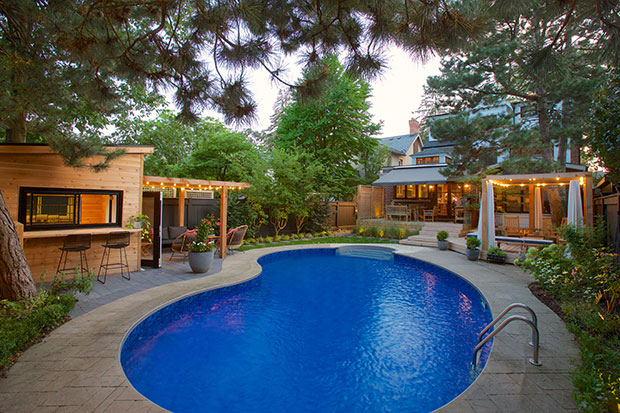
Create Rooms
“Our big mandate is always create the feeling of rooms in a backyard. This garden has a cabana with a separate bar that can be accessed from the side, plus a casual seating area in front of the cabana. There’s another patio area with drapes and a dining area off the kitchen so you have areas for recreation, dining and lounging, and they are each enhanced by lighting to make these areas feel distinct, celebratory and special.”
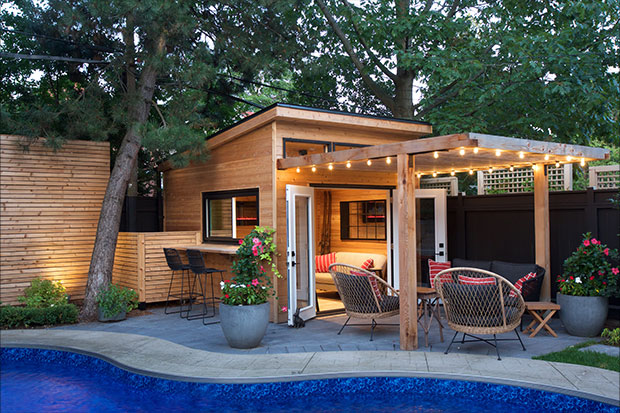
Build Lighting Into The Budget
“Usually my budget price for lighting is around $7,500, but you can spend $4,000 and lowball or $12,000 and go crazy. Budget will often dictate lighting, it’s a luxury item, but boy, it makes a difference.”
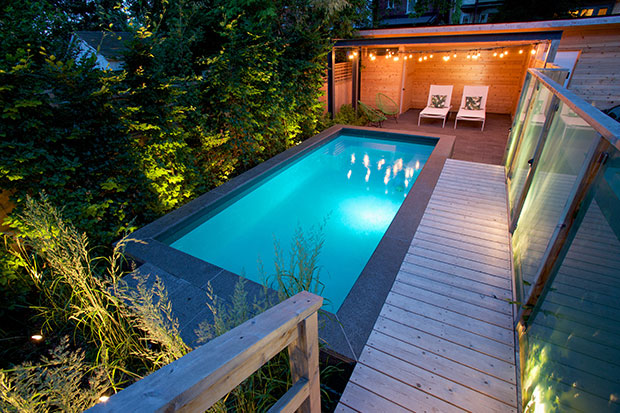
Set Up String Lights
“String lights are totally cost efficient and you can get them from any big box store, like Lowe’s or Canadian Tire. Round, traditional bulb are what I like, they always look amazing and you instantly feel like you’re in California or Tuscany. We have them up north and we just ran an extension cord and plugged them in. Keep in mind they should stay portable: you need to put them up and see how they look. Don’t pin them down because you’re going to want to go out and move them around a few times. Don’t make anything solid and built in, that’s irreversible.”
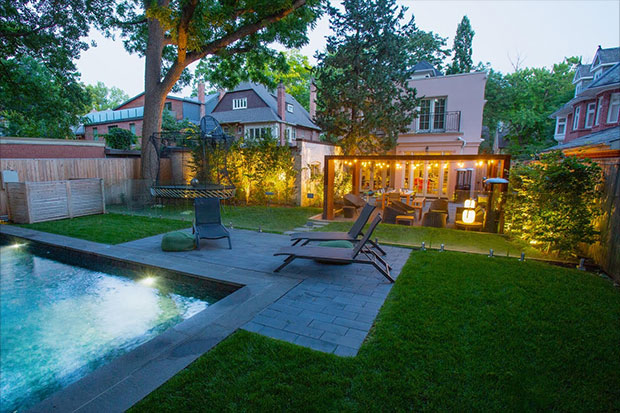
Pick A ‘Zinger’
Use uplighting to highlight natural materials like these simple European Columnar Beech trees. “Generally, if you start with lighting your plant material, you’re in great shape. Then if you have a unique feature, like what we call a zinger, you can light that as well.”
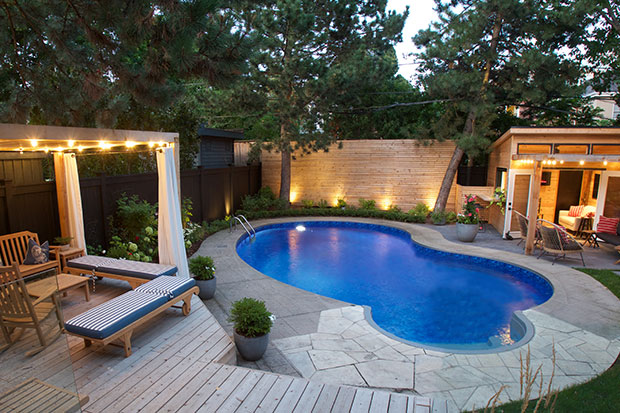
Think Winter Interest
“Lighting finishes a project. The reality is it gets dark so early in the wintertime and lights look great all year round,” observes Joel, who says more homeowners want to contemplate pretty winter gardens, even if the leaves are bare. “We’re heavily invested in low-maintenance plants and winter interest. People put hostas and day lilies in the ground and they die back to nothing for five months of the year. Lighting helps your yard look amazing during those dreary winter months.”
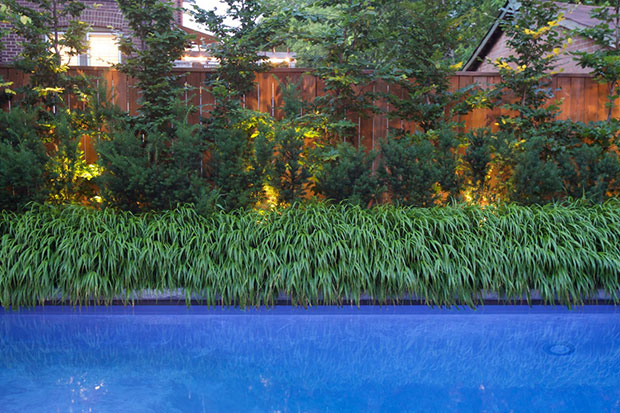
Highlight Plant Material
“Lighting up ornamental grasses, or perennial beds is spectacular. Naturalize the edge of the pool with plantings to make it more of an oasis. Hakonechloa macra (Hakone Grass) kiss the water in this pool, it’s beautiful and low maintenance, you just cut it back in the spring and you’re done.” Behind it, lighting is used to highlight the yews. “We believe our plants are like paintings and having layers. The first layer is the Hakonechloa grass at 18 inches high, and then 3′ yew hedging, and then the columnar beech trees against the fence. It’s all about rooms and layers.”
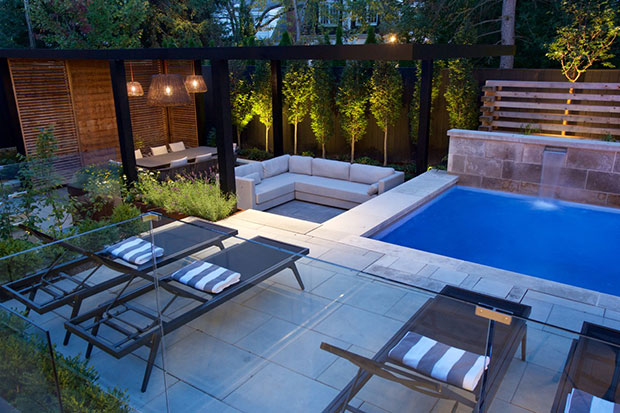
Layer Light Sources
In this pergola, puck lights are built into the steel beams of this pergola, but the statement makers are these woven pendants over the table. “Again, it makes the dining area feel more like a room.” Behind the sofa is a line of European Columnar Beech, a go-to for Joel’s plantings. “They’re an amazing alternative to cedars because they hold their leaves to give privacy all year round.”
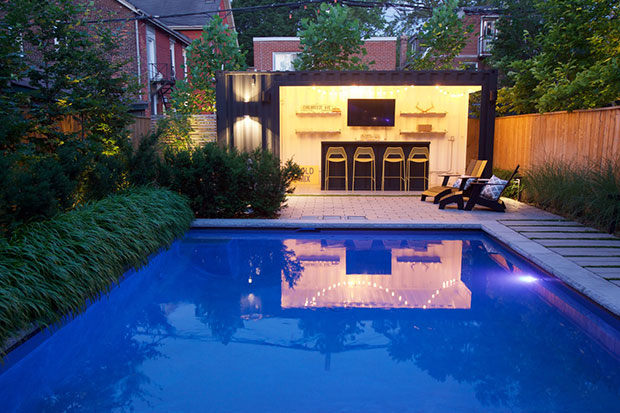
Use Warm Light For A Candlelit Effect
This outdoor bar is fashioned from a shipping container and glows like a beacon at the foot of garden, and it’s further enhanced with a mod sconce. “Who doesn’t want the feeling of candle lighting outside? You want to aim for atmospheric lighting, like how a candle burns a beautiful yellow — it’s not about bright, blinding white.”
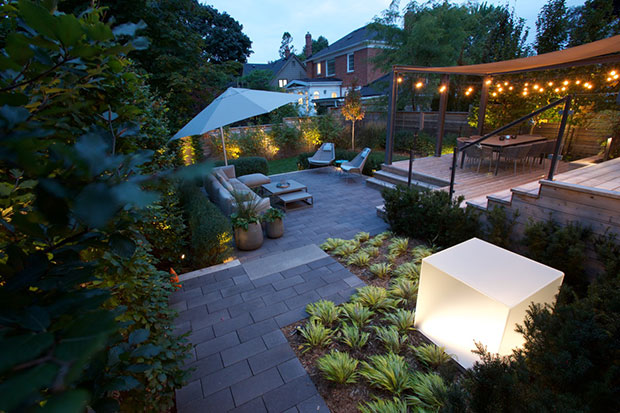
Think Outside The Box
Glowing glass cubes are a mainstay of Joel Loblaw designs. “We really like working with frosted glass light cubes — they are really a sculpture-like signature for us.”
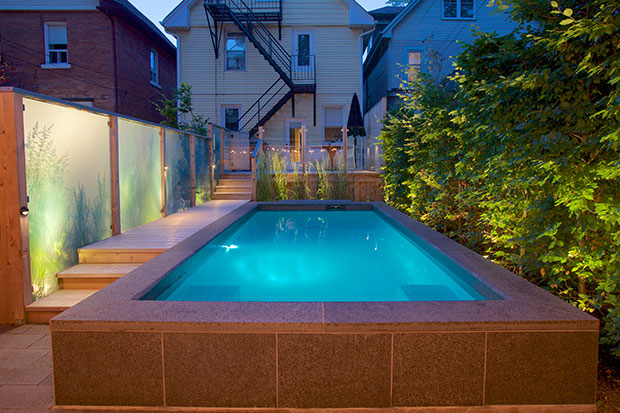
Illuminate Architectural Details
“When I started this 30 years ago, lighting was as simple as uplighting a service berry or Japanese maple. Now there’s glass screens and architectural elements, and it’s become a lot more complicated so don’t forget to light those elements.” Here, frosted glass panels are illuminated, making the silhouettes of the neighbouring plants look theatrical.
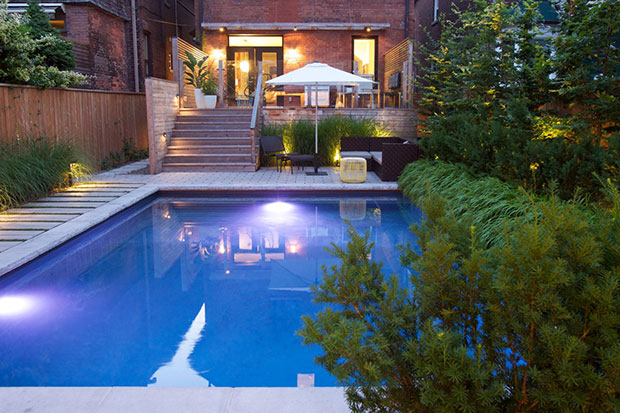
Use Bullet Lights
“I like to use very subtle black bullet lights. The idea is you do not see the fixture, you see the light. And I would say as a rule thumb, it usually takes more than you would think. It’s supposed to be an art form and a subtle, beautiful thing — like lighting your garden by candlelight. If you go in there and just do five floodlights, it’s brutalism.”
Courtesy Joel Loblaw
Joel Loblaw